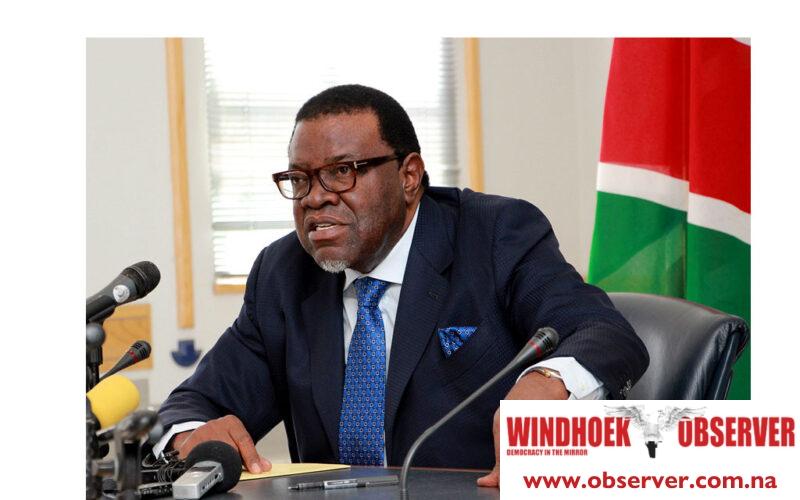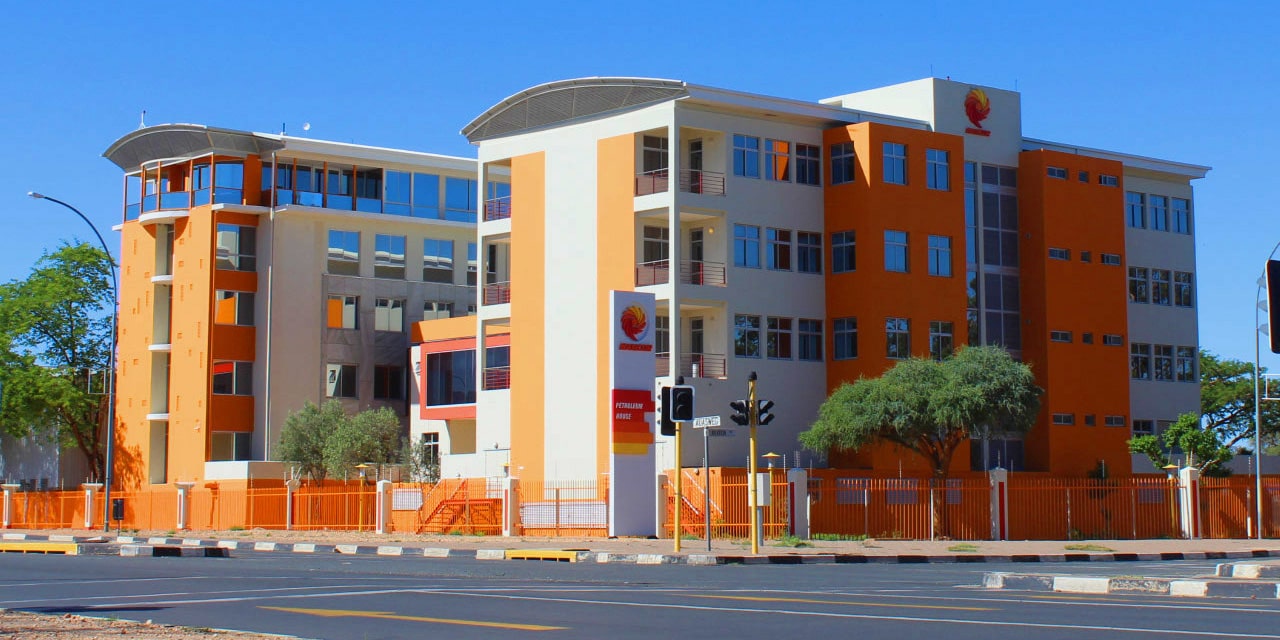Martin Endjala
President Hage Geingob has expressed concerns about the current Southern African Customs Union (SACU) trading model and called for a reevaluation of its approach, citing the challenges posed by the existing system.
The President made these remarks during an end-of-year briefing at the State House in Windhoek.
He emphasized the need to revisit SACU’s model, which he believes is hindering Namibia’s industrialization efforts.
Geingob pointed out that Namibia cannot directly import cars and other goods from Europe or other regions; instead, it must go through South Africa.
He argued that this current approach should be reconsidered for the future of SACU and the Southern African Development Community (SADC) to thrive democratically.
“I told my colleagues that as long as SACU is run in this way, we cannot industrialise, hence we need to seriously look at SACU and see what we can do. We need to find alternatives,” said the President.
Stating that it is for this reason, that the President undertook a State Visit to South Africa on 20 April 2023, at the invitation of his counterpart President Cyril Ramaphosa.
The visit was aimed at further strengthening the already existing bilateral relations between Namibia and South Africa.
In addition to bilateral discussions on issues such as the Orange River Border question, and the Southern African Customs Union, the two discussed regional, continental and international issues of mutual concern.
Geingob said that his state visit afforded Namibia and South Africa an opportunity to strengthen bilateral cooperation, enhance economic cooperation; explore trade and investment, and also identify new areas of cooperation in the fields of Green Hydrogen, including the Oil and Gas sectors.
However, despite his concerns, he stated there are ongoing discussions to look into the issues of the Orange River and SACU, hence he could not divulge much about the matter.
Meanwhile, after the difficulties that the country went through, the President is optimistic that the country is on a positive trajectory.
“The future looks bright – Namibia is resilient and resurgent. Our country is in demand and is seen as a model for the Green Energy Transition, including the discovery of oil holds exciting prospects for economic growth and prosperity.
As a leader, I can dream and point toward the direction of prosperity, but it is up to all of us as a collective, to actualise these dreams and manifest them into reality because success can only be achieved when the People are united behind a common goal and purpose,” he said.
Furthermore, he maintains that development cannot be tangible without effective multilateral and bilateral partners. Further lauding the development cooperation partners, including the United Nations system, the European Union as well as other bilateral partners who have made tangible contributions throughout the year.
He noted that efforts in economic transformation and the acceleration of the Sustainable Development Goals have been enhanced as a result of the continued collaboration the government have fostered with all of its citizens.
The head of state said Namibia has survived the turbulent headwinds of the commodity downturn; droughts recorded to have been the most severe in history; and when the country was about to turn the corner, COVID-19 hit badly.
However, despite this, the country has circumvented the rough tides and now, the government and the citizens stand ready to forge ahead and revive the Namibian economy by continuing the drive towards shared prosperity.




